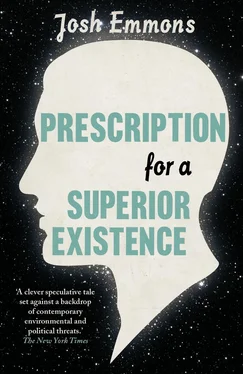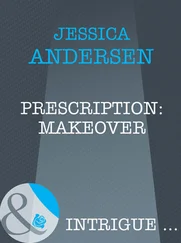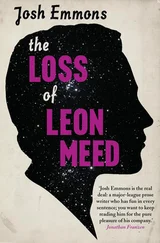Everyone looked at their hands or laps uncomfortably until Alastair, in the posh accent that Americans affect to tell British jokes, said, “Isn’t a savant basically like a more advanced declared Paser, in that he professes faith in UR God but takes it a step further by giving up sex? He walks the walk, in other words.”
“Correct,” said Mr. Ortega, “ if sex is his or her favorite activity. It’s important to note that you become a savant by giving up whatever you most love to do, which isn’t always sex. Many people live happily without that and therefore renounce nothing by renouncing sex. They need to look elsewhere in order to achieve savant status, such as to chocolate or gambling or cocaine or shoe shopping. The essence of being a savant is self-control; it demonstrates the beginning of your independence from the false joys of this world and shows your affinity with UR God.”
This was all very boring and I remembered counseling wistfully and with a new fondness. I thought about Rema’s various exploits, their audacity and imaginativeness, which, now that she’d joined PASE, would cease, and I grieved for their passing. Then, despite my earlier conclusion that half of what had gone wrong in my life was externally unchangeable and the other half internally so, and that I should not worry about where I was going—the bottom of the mountain toward which I was barreling—the tetrahedron of my problems rose up in my mind’s landscape like a terrible portentous obelisk. It eclipsed everything else in my line of sight, so that I barely saw Shang-lee sitting next to me, his hands folded in his lap in bodhisattva fashion, and feared that I might pass out from terror at any minute. I badly wanted—I needed—a sedative and drink and cigarette and pornography and coffee and chocolate and lasagna and assurance that I would not languish here forever, that my absence meant something in the world at large.
Shang-lee asked me if I was all right and I nodded.
Mr. Ortega opened his hands questioningly at us, cocked an eyebrow, and then continued, “After you’re a savant you become a functioning savant. In this stage you branch out beyond desire in its most active sense to work on curtailing your vanity and self-focus, the two biggest impediments to improvement. As a functioning savant you will think less about yourself and how others perceive you. To do this requires reducing the time and money you spend on clothes, cosmetics, hair care, entertainment, etc., and at the same time increasing your charitable contributions and your study of The Prescription . Both your reductions and your increases need to be substantial. For example, you can’t buy four lipsticks instead of five and call that cutting back, nor can you spend eight hundred instead of nine hundred dollars on a new season’s wardrobe. You must feel the deprivation of having less than you used to.”
“How long does it take to go from being a savant to a functioning savant?” asked Tonya. Midway through Mr. Ortega’s speech she had put down the emery board with which she’d been filing her nails, as though even this act of grooming might be unPASElike.
“The Rubins must have told you in orientation,” said Mr. Ortega, “that everyone advances at their own speed, but I’ll warn you that it’s possible to go too slowly or too quickly. You can’t become a functioning savant overnight, nor can you drag it out over ten years. The good news is that when you reenter the outside world you’ll be able to consult with advanced Pasers at any PASE Station to come up with an appropriate timeline. Just remember that your improvement has to be real and consistent. You can’t take breaks to do things you’re not supposed to.”
“Do you get a badge or a certificate when you move up a level?” Tonya asked.
“No.”
“Then how’s anyone supposed to know you’re a functioning savant and not some starting-out type?”
“UR God will know and you will know. Nothing else matters.”
“But it wouldn’t be bad—you wouldn’t get in trouble, right—if you wore a shirt that said ‘functioning savant’ on it or a button or a belt buckle.”
“That would be fine. Now, after the functioning savant stage you will graduate to the master savant stage, which is defined by fewer desires, smaller meal portions, a commitment to buying only used clothes and no-brand hygienic items, further engagement with The Prescription, taking a leadership role in a local Paser study group, and active volunteering with the PASE Process, such as at one of its soup kitchens or homeless shelters or hospital terminal wards.”
“I’d like to do something with the blind,” said Alastair. “I’d like to read to them or take them to a museum.”
Mr. Ortega made a displeased face and said, “Next you’ll become an actuated savant. I, for example, got to this stage a year ago by memorizing large sections of The Prescription, whittling down my desire, eating modest meals without appetizers or desserts or alcohol, dressing mainly in my tunic, and making large contributions to the PASE Process.”
“Does everyone have to be an actuated type to get a job here?” asked Tonya.
“It’s a necessary prerequisite, yes, for becoming a facilitator, along with taking a test and undergoing an apprenticeship training program. The whole process takes about two months, and only a third of the applicants are then hired to be on staff.”
“Are the tests hard?”
“They’re challenging, yes.”
“Did you have to know lots of names and dates? Because my intelligence isn’t geared toward those per se. I’m more of a conceptual thinker, and I’m wondering if there’s a type of test that would capitalize on that aspect of the mind as opposed to the dates.”
“The tests are very concept-oriented, yes.”
Mr. Ortega and Tonya went on for a while and to distract myself I drew up a mental list of people from whom I might ask to borrow money to pay my creditors until I found a job: my parents, though they’d retired the year before and were cash poor; my brother, Sid, who owed me three thousand dollars but wouldn’t have it; Max, who carried almost as much credit card debt as I did; Supritha, whose family was wealthy but not fond of me; and Juan, who, having sold me out at Couvade, would probably avoid me forever. Mr. Ortega was nodding at Tonya and Alastair was scrawling notes and I was having revelations I’d had many times before. At age thirty-four you don’t have the thousand options you had at twenty-four. If barred from the world of capital growth assessment, I effectively had none. Anxiety fell on me in droplets as corrosive as acid rain, and Mr. Ortega told a joke that made everyone laugh, and I saw no shelter big enough to cover me.
“Next,” Mr. Ortega said, “comes the master actuated savant stage. This is the penultimate step you take before becoming an ursavant. In it you renounce all desires beyond those necessary for maintaining a physical body, such as for food, water, heat, sleep, and oxygen. You have to know The Prescription backward and forward, give away whatever money and objects you don’t immediately need, work with the sickest and most hobbled people in the vicinity, advocate nonviolence and universal tolerance, and take care of any unfinished business you may have in anticipation of becoming an ur-savant.” He paused and cracked his knuckles. “I’m not going to lie or sugarcoat it: this is a difficult level. It requires a great deal of commitment—a superhuman control over your corporeal reality—so don’t worry if it sounds impossible to you right now. No one when they first start jogging attempts an ultra marathon.”
Normally when a person in a meeting lays out a preposterously hopeful forecast, when they talk about doubling a company’s clients or tripling its revenue in a year, the realists in the room hasten to point out the obstacles to such a development, from the scarcity of potential new clients to increased competition to insufficient staffing, and quash the fantasy before anyone besides the initial speaker decides to believe in such nonsense. I listened to this description of a master actuated savant and expected someone to point out the patent absurdity of anyone—much less hundreds or thousands of Pasers—fulfilling its ascetic criteria, and when Alastair raised his hand, I looked to him as a mute would his advocate.
Читать дальше












